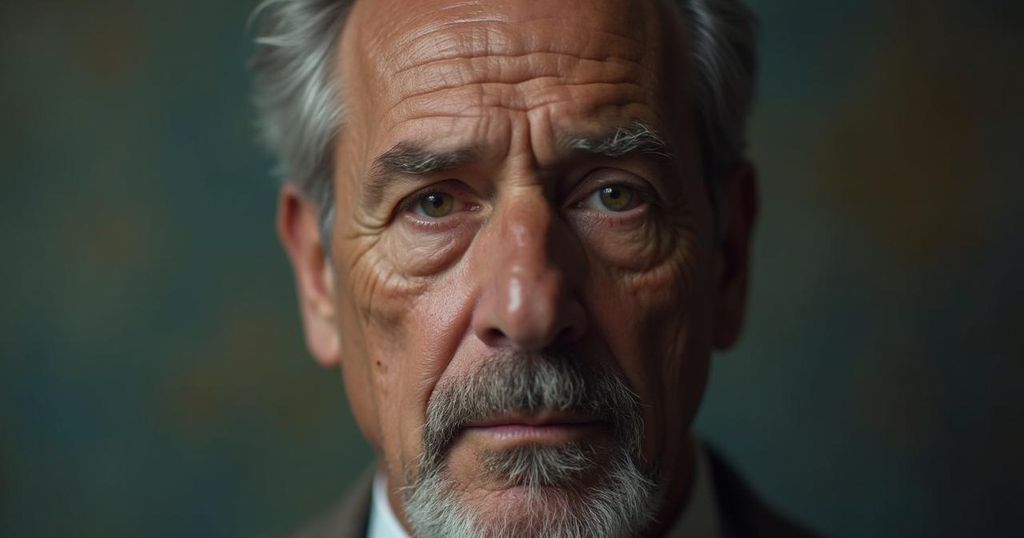Father of Notorious Rapist States ‘Punishment Fits His Crimes’ After Son’s Life Sentence

The father of Reynhard Sinaga, sentenced to life imprisonment for 159 sexual offenses against 48 men, stated that his son’s punishment is just. Sinaga’s actions, committed after luring victims to his Manchester apartment, triggered shock and anger in Indonesia, raising issues of societal shame and the treatment of victims.
The father of Reynhard Sinaga, identified as the most notorious rapist in British legal history, has publicly acknowledged that his son’s punishment “fits his crimes” following Sinaga’s life sentence. At 36 years old and originally from Indonesia, Sinaga was convicted of 159 sexual offenses against 48 men, which he committed after luring victims to his apartment in Manchester, where he drugged and assaulted them while recording the incidents. The court sentenced him to a life term with a minimum of 30 years. As the Sinaga family comes to terms with this outcome, they have shared insights about Reynhard’s earlier life in Indonesia. His father, Saibun Sinaga, expressed acceptance of the verdict during a phone interview, stating, “I don’t want to discuss the case any further.” During his university years in Indonesia, Sinaga was considered sociable and popular among peers, with friends describing him as easy-going and enjoyable to work with. After earning a degree in architecture, he moved to the UK in 2007, where he found an atmosphere that allowed him to express his sexuality openly. Reynhard Sinaga was born into a well-off family in Indonesia’s Batak tribe, with his father’s wealth enabling him to be an international student for over ten years. His actions in the UK have sparked widespread outrage back home, with many Indonesians expressing feelings of shame and calling for stricter penalties, including the death penalty, which is not applicable in Britain. During the trials, Sinaga’s family painted him as a religious and bright individual, with his mother even providing a character witness statement despite being absent from the trials themselves. The judge, Suzanne Goddard QC, highlighted that Sinaga’s family remains unaware of his true character, noting the severity of his crimes. In the aftermath of the sentencing, police indicated that Sinaga may have targeted up to 190 victims. The incident has prompted discussions on social media regarding the treatment of sexual assault and the support available to victims in England compared to Indonesia, where societal attitudes often fault the victims instead of the perpetrators. For Indonesia’s LGBT community, Reynhard Sinaga’s case raises significant concerns about potential backlash amid an environment of increasing intolerance. Advocacy groups warn that the case could be misused by hate groups to further push against the rights of the LGBT community, despite the case at hand regarding criminal actions independent of any sexual orientation. Sinaga’s case has ultimately inspired debates about justice and the treatment of victims in different cultural contexts.
Reynhard Sinaga’s criminal activities represent one of the most severe cases of sexual offenses in British history. The case has had widespread repercussions, not only for his victims but also for his family and the broader Indonesian community. His life sentence was an unprecedented moment in discussions surrounding sexual violence, consent, and the legal system’s handling of such cases in a cross-cultural context. Sinaga’s case also throws light on cultural attitudes towards sexual orientation and the societal reactions to crimes committed against men within the LGBT community, especially in countries like Indonesia where such discussions can lead to significant backlash.
In summary, Reynhard Sinaga’s conviction and life sentence have incited a multifaceted conversation about sexual violence, victim support, and societal attitudes toward homosexuality in both the UK and Indonesia. His father’s acknowledgment of the punishment, the family’s recollections of his character, and the contrasting perceptions of justice highlight the complexities involved in sexual offense cases. Furthermore, the potential implications for Indonesia’s LGBT community following this incident demonstrate the broader consequences of such crimes on societal perceptions and media portrayals of similar cases.
Original Source: www.adomonline.com







